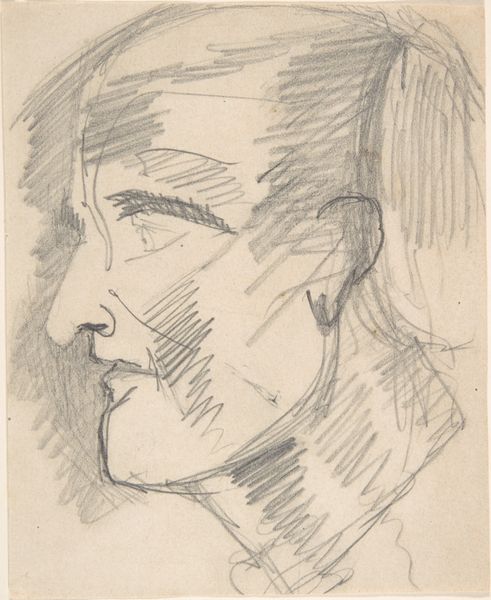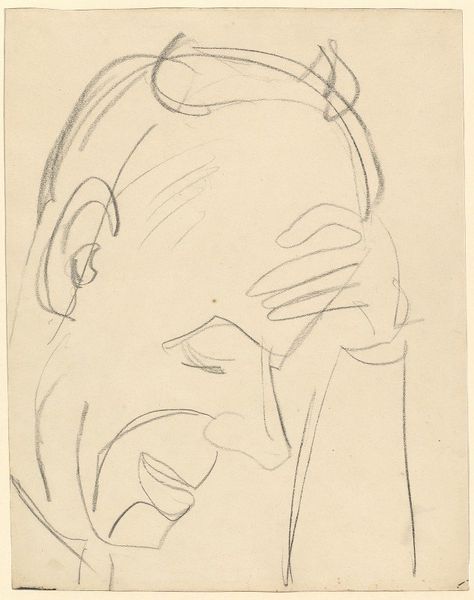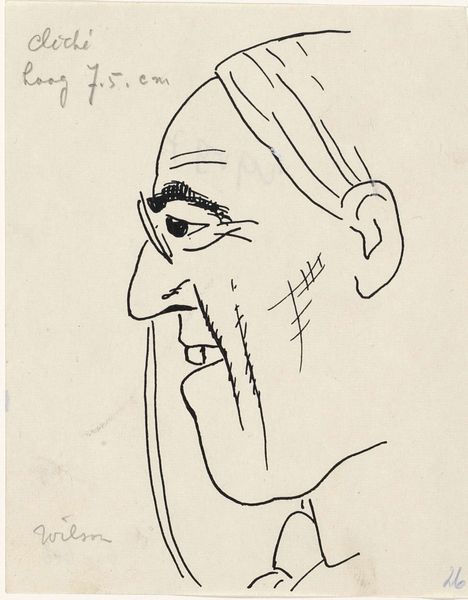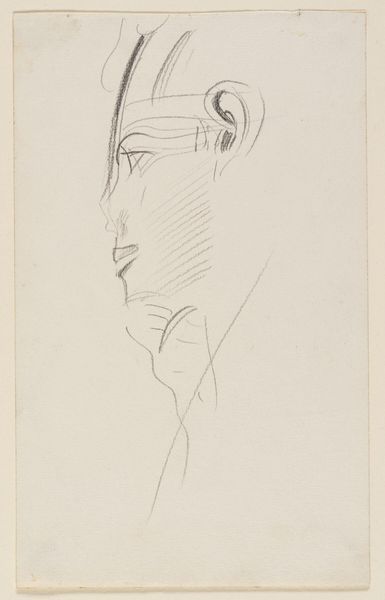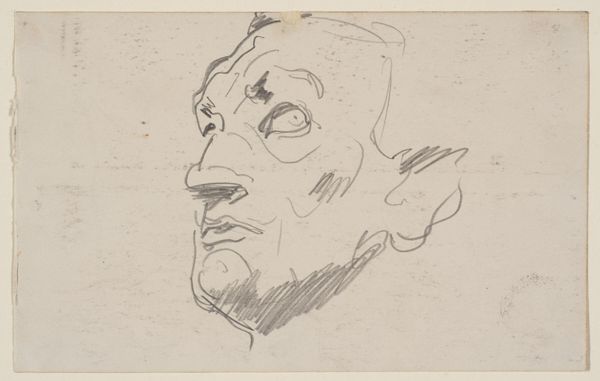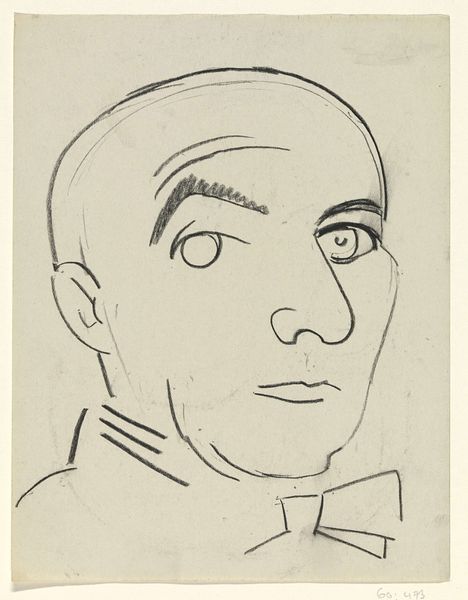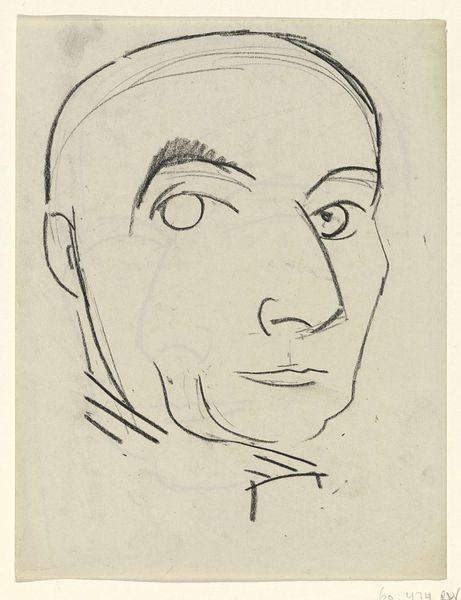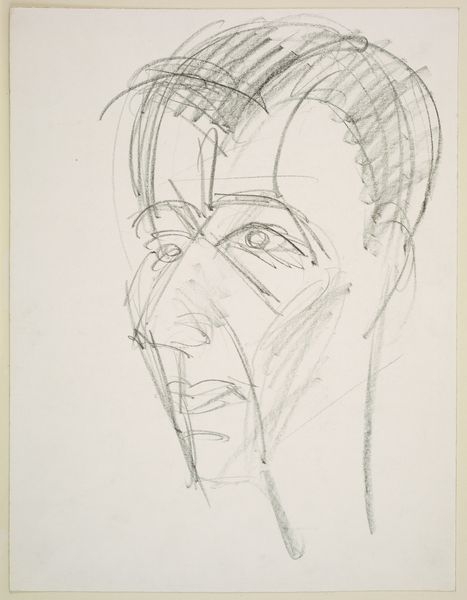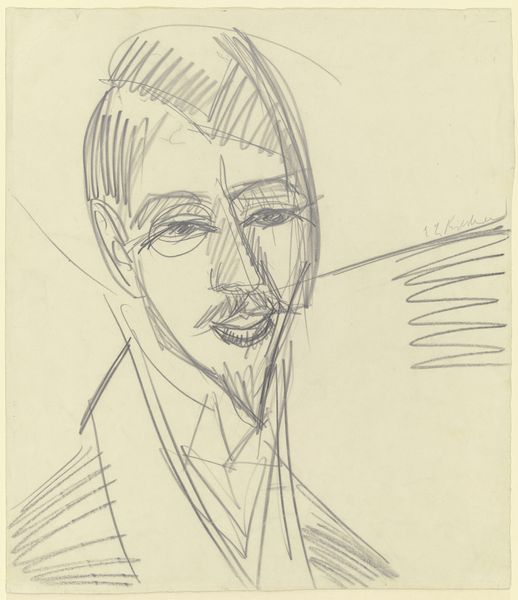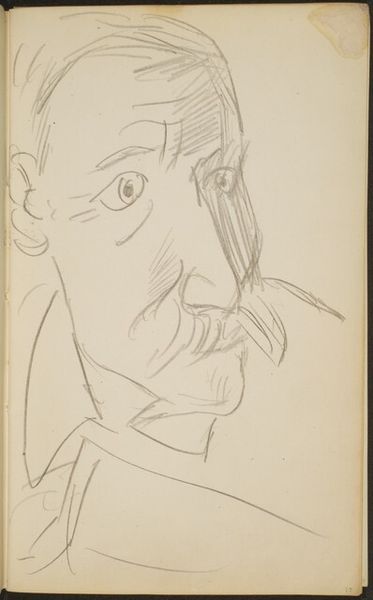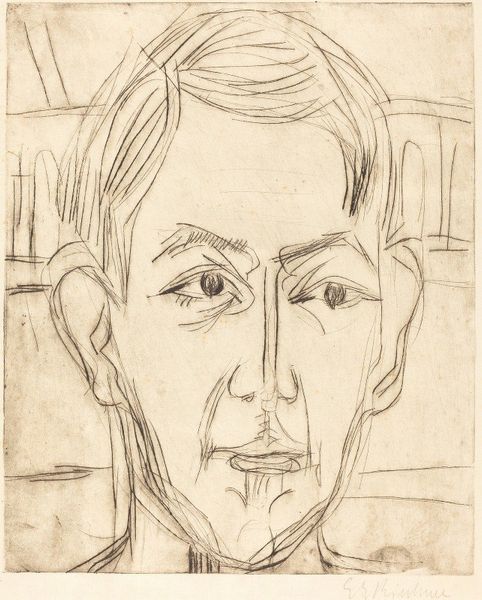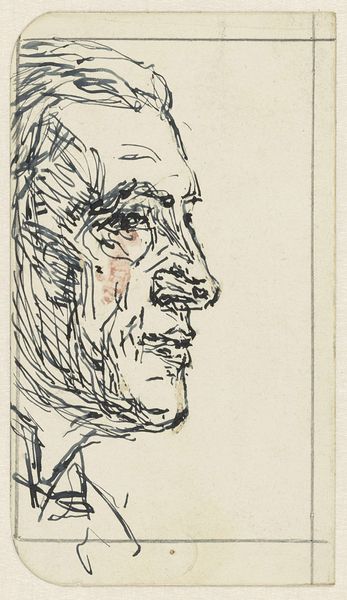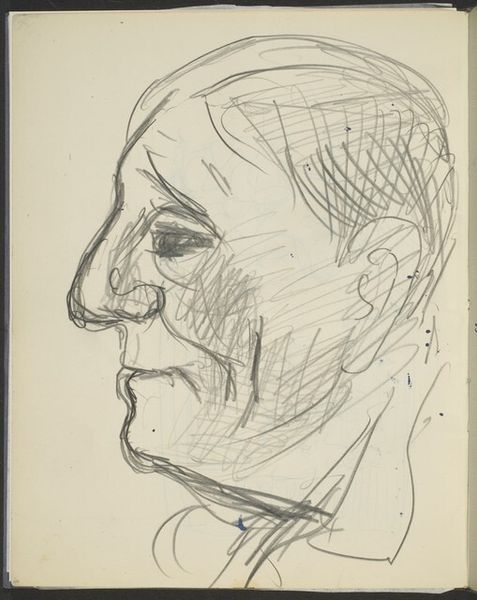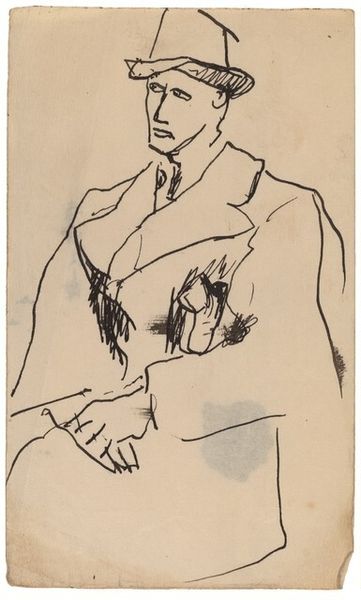
drawing, ink, pen
#
portrait
#
drawing
#
pen illustration
#
figuration
#
ink
#
ink drawing experimentation
#
pen
#
portrait drawing
#
modernism
Dimensions: height 192 mm, width 131 mm
Copyright: Rijks Museum: Open Domain
Editor: Here we have Leo Gestel's "Portrait of Thomas Woodrow Wilson," created between 1934 and 1936, using pen and ink. It's at the Rijksmuseum. The raw, almost skeletal lines give it a strikingly haunting feeling. What do you make of it? Curator: Haunting is a great word for it. I see a man, stripped down to the bones of his character, or at least Gestel's interpretation of it. It feels raw, yes, unfinished, like a memory struggling to solidify. And those lines, like scars mapping his face – perhaps the weight of the world etched upon him. What strikes you most about the technique? Editor: I'm drawn to the background. It’s just frantic, scribbled lines, like a storm raging around his head. Curator: Precisely! And the eyes… They're intense, observant, almost wary. It’s like Gestel is saying, "Here’s Wilson, but seen through a lens of post-war disillusionment, perhaps." Or even seen through the artist's own anxieties and uncertainties. It seems like this isn’t just a portrait of a president; it's a mirror reflecting a fractured era. Do you think Gestel intended to humanize Wilson, or critique him? Editor: Maybe both? The frantic lines make me think critique, but then those eyes… They give him humanity. Curator: Beautifully put. It's that ambiguity, that tension between admiration and disillusionment that gives the piece its lasting power, don’t you think? Editor: I do. It makes you think about how we remember historical figures – not as heroes or villains, but as complex people. Curator: Exactly. Art is like that, it can make you ponder the narratives that shape us.
Comments
No comments
Be the first to comment and join the conversation on the ultimate creative platform.
